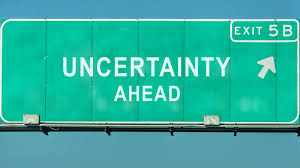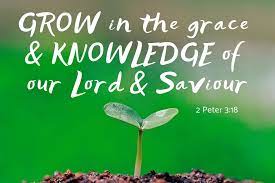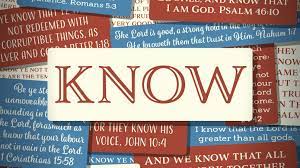What I never learned in Sunday School.
I accepted Jesus Christ as my Savior at Allen Chapel A.M.E. Church at the ripe old age of nine years old. Although I can’t remember the circumstances leading to that decision, I do have my certificate of baptism to prove it. We ALWAYS attended Sunday School at the Epps House. We weren’t given a choice! It was Sunday School until we either married or went off to college. Looking back, that was pretty much the rule for most of the families in the community of Quindaro.
I later realized that although I attended Sunday School and church every week, I knew a lot about God, but only a thimbleful about the Holy Spirit. I didn’t understand how the Holy Spirit helped me in my walk with Jesus. Hey, I was only nine!
It would be much later in my life (forty something) that I would better understand that without the Holy Spirit, I would not be able to become the person God had designed me to be (Jer. 29:11). It is what I learned after Sunday School that made the difference.
How the Holy Spirit enters our life.
There are many scriptures in the New Testament that describe the ministries of the Holy Spirit. The most informative, for me, is found in the Gospel of John. It is here that Jesus promises the Holy Spirit, who will abide with His Disciples forever (John 14:16-17). And that same promise is ours today!
The work of the Spirit is described in greater detail in John 16:5-15. In this chapter we are introduced to His role in God’s plan of salvation.
And He, when He comes, will convict the world about [the guilt of] sin [and the need for a Savior], and about righteousness, and about judgment: about sin [and the true nature of it], because they do not believe in Me [and My message]; about righteousness [personal integrity and godly character], because I am going to My Father and you will no longer see Me. (John 16:8-10, Amplified)
The Holy Spirit exposes our personal sin and our need for a Savior (conviction). Jesus Christ is the “perfect sacrifice” to atone for our sin (redemption). Then the Holy Spirit comes to dwell within us, making possible our new birth (regeneration). We are now ready to begin our faith walk (transformation). It is here that we become conformed to the image of Christ (Rom. 8:29).
The Spirit transforms our life.
Conforming to the image of Christ begins with sanctification. According to Webster, sanctification is defined as:
- the state of being sanctified or made holy
- the state of growing in divine grace as a result of Christian commitment after baptism or conversion
To sanctify means “to make holy.” We cannot share the holiness of God’s essential nature, but God does call us to be holy (1 Pet. 1:15-16). As we follow the guidance of the Holy Spirit and obey God’s Word, we “grow in divine grace” and are “set apart” to serve God. Our fleshly desires, the world’s influence, and Satan’s deception, no longer hold sway over our lives (Rom. 6:11).
Sanctification is a “transformational process” that will not end until we reach eternity. Every day we learn to trust the Holy Spirit to guide and direct; to inform our prayers; to illuminate the Bible. The Holy Spirit is the POWER OF GOD that changes lives. THAT’S what I learned after Sunday School!










